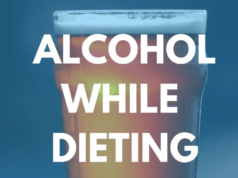What diet pills actually work? This question has plagued weight-conscious individuals for decades, with countless products promising miraculous results. The allure of a quick fix for weight loss is undeniable, but navigating the complex world of diet pills requires careful consideration and a healthy dose of skepticism.
The weight loss industry is saturated with a vast array of pills, each claiming to be the key to shedding pounds effortlessly. From appetite suppressants to fat blockers and metabolism boosters, these products promise to unlock the secrets to a slimmer physique. However, the effectiveness and safety of these pills vary greatly, and it’s crucial to separate fact from fiction before embarking on a diet pill journey.
The Science Behind Weight Loss

Weight loss is a complex process that involves a combination of factors, including calorie intake, metabolism, and physical activity. Understanding the science behind weight loss can empower individuals to make informed decisions about their health and well-being.
Calorie Deficit and Metabolism
A calorie deficit occurs when you consume fewer calories than your body burns. This imbalance forces your body to tap into its stored energy reserves, primarily fat, resulting in weight loss. Metabolism refers to the chemical processes that occur within your body to maintain life. It involves breaking down food for energy and building and repairing tissues.
A calorie deficit is the foundation of sustainable weight loss.
Hormones and Appetite Regulation
Hormones play a crucial role in regulating appetite and influencing weight management. Leptin, a hormone produced by fat cells, signals to your brain that you are full. Ghrelin, on the other hand, is a hunger hormone that stimulates appetite.
Leptin and ghrelin work together to regulate energy balance and influence food intake.
Impact of Exercise and Physical Activity
Exercise and physical activity contribute to weight loss by increasing calorie expenditure and building muscle mass. Muscle tissue burns more calories at rest than fat tissue, leading to a higher metabolic rate.
Regular exercise can enhance weight loss by increasing calorie expenditure and boosting metabolism.
Types of Diet Pills: What Diet Pills Actually Work
Diet pills are medications or supplements that aim to promote weight loss by influencing various physiological processes involved in appetite, metabolism, and fat absorption. These pills can be categorized based on their mechanisms of action. While they may offer a temporary solution for weight loss, it’s crucial to understand their potential side effects and risks before considering them.
Appetite Suppressants
Appetite suppressants work by reducing hunger and cravings, making it easier to consume fewer calories. They achieve this by targeting specific areas of the brain responsible for regulating appetite and satiety.
Examples of Appetite Suppressants
- Phentermine (Adipex-P, Lomaira): This medication is a stimulant that works by increasing the release of norepinephrine, a neurotransmitter that suppresses appetite. It is typically prescribed for short-term use (up to 12 weeks) in conjunction with diet and exercise.
- Orlistat (Xenical, Alli): This medication is a lipase inhibitor that blocks the absorption of dietary fat. By reducing fat absorption, orlistat can help with weight loss. It is available over-the-counter (Alli) and by prescription (Xenical).
- Lorcaserin (Belviq): This medication is a serotonin receptor agonist that works by activating serotonin receptors in the brain, which helps regulate appetite and reduce food intake. It is typically prescribed for long-term use in conjunction with diet and exercise.
Potential Side Effects and Risks of Appetite Suppressants
- Increased heart rate and blood pressure: Stimulant appetite suppressants like phentermine can increase heart rate and blood pressure, which can be risky for individuals with pre-existing cardiovascular conditions.
- Insomnia and anxiety: Stimulant appetite suppressants can also cause insomnia, anxiety, and restlessness.
- Gastrointestinal issues: Orlistat can cause gastrointestinal side effects like oily stools, gas, and diarrhea.
- Headache and dizziness: Lorcaserin can cause headache and dizziness.
- Interactions with other medications: All appetite suppressants can interact with other medications, so it’s crucial to inform your doctor about all medications you are taking before starting any diet pills.
Effectiveness of Diet Pills
Diet pills, also known as weight-loss medications, are a popular option for individuals seeking to shed extra pounds. However, their effectiveness varies widely, and understanding the science behind them is crucial for making informed decisions. This section explores the effectiveness of different diet pills, analyzing scientific studies and real-world evidence to provide insights into their efficacy and limitations.
Efficacy of Diet Pills
Scientific studies and clinical trials have investigated the effectiveness of various diet pills in promoting weight loss. The results of these studies have revealed that some diet pills can be effective in helping individuals lose weight, while others have shown limited or no benefits.
Phentermine
Phentermine is a stimulant medication that works by suppressing appetite and increasing metabolism. Several studies have demonstrated its effectiveness in promoting weight loss. For instance, a study published in the journal *Obesity* found that individuals taking phentermine lost an average of 5-10% of their body weight over a 12-week period.
Orlistat
Orlistat is a medication that blocks the absorption of dietary fat. Studies have shown that orlistat can lead to modest weight loss, typically around 5-10% of body weight over a year. A study published in the *Journal of the American Medical Association* found that individuals taking orlistat lost an average of 6.4 pounds more than those taking a placebo.
Lorcaserin
Lorcaserin is a medication that works by activating serotonin receptors in the brain, which helps to regulate appetite. Studies have shown that lorcaserin can lead to modest weight loss, typically around 3-5% of body weight over a year. A study published in the *New England Journal of Medicine* found that individuals taking lorcaserin lost an average of 5.4 pounds more than those taking a placebo.
Liraglutide
Liraglutide is a medication that mimics the effects of a hormone called glucagon-like peptide-1 (GLP-1), which helps to regulate appetite and blood sugar levels. Studies have shown that liraglutide can lead to significant weight loss, typically around 10-15% of body weight over a year. A study published in the *Lancet* found that individuals taking liraglutide lost an average of 12.4 pounds more than those taking a placebo.
Limitations and Biases in Research
It’s important to acknowledge the limitations and biases present in research studies on diet pills. Some common limitations include:
- Short-term studies: Many studies are conducted over a relatively short period, often 6-12 weeks, which may not reflect long-term effects.
- Small sample sizes: Some studies have small sample sizes, which can limit the generalizability of the findings.
- Funding bias: Studies funded by pharmaceutical companies may be more likely to show positive results for their own products.
- Participant selection bias: Studies may not accurately represent the general population, as participants are often selected based on specific criteria.
It’s crucial to consider these limitations when interpreting research findings on diet pills.
Real-World Evidence
Real-world evidence, such as observational studies and patient reports, can provide additional insights into the effectiveness of diet pills. However, this type of evidence is often subject to bias and confounding factors, making it difficult to draw definitive conclusions.
Comparison of Diet Pills
Comparing the efficacy of different diet pills is challenging due to variations in study designs, participant characteristics, and outcome measures. However, based on available evidence, certain trends emerge:
- Phentermine and orlistat have shown moderate effectiveness in promoting weight loss.
- Lorcaserin and liraglutide have demonstrated greater effectiveness, particularly liraglutide, which has been associated with significant weight loss.
It’s important to note that the effectiveness of any diet pill can vary depending on individual factors, such as genetics, lifestyle, and underlying health conditions.
Long-Term Effects of Diet Pills
While diet pills can offer short-term weight loss, their long-term effects can be concerning. It’s crucial to understand the potential risks associated with their prolonged use.
Potential for Addiction
Prolonged use of certain diet pills, particularly those containing stimulants like phentermine, can lead to dependence and addiction. These stimulants can alter brain chemistry, creating a craving for the drug and making it difficult to stop using it. Signs of addiction include:
- Increased dosage to achieve the desired effect.
- Withdrawal symptoms like fatigue, irritability, and depression upon discontinuation.
- Neglecting responsibilities or engaging in risky behaviors to obtain the drug.
Nutrient Deficiencies
Many diet pills suppress appetite by interfering with the body’s natural hunger signals. This can lead to reduced food intake and, consequently, nutrient deficiencies. For example, some pills can interfere with the absorption of vitamins and minerals, increasing the risk of deficiencies in vitamins B12, D, and iron.
Metabolic Changes
Long-term use of diet pills can disrupt the body’s natural metabolic processes. Some pills can increase metabolism, leading to a temporary increase in energy expenditure. However, this effect can diminish over time, potentially leading to weight regain or even weight gain.
Impact on Cardiovascular Health, What diet pills actually work
Certain diet pills, particularly those containing stimulants, can increase heart rate and blood pressure, putting individuals at risk of cardiovascular problems. For example, studies have linked the use of phentermine to an increased risk of stroke and heart attack, particularly in individuals with pre-existing cardiovascular conditions.
Impact on Liver Function
Some diet pills can cause liver damage, particularly in individuals with pre-existing liver conditions. For example, some herbal supplements marketed for weight loss have been linked to liver toxicity.
Impact on Mental Well-being
The use of diet pills, particularly those containing stimulants, can have negative effects on mental health. Some individuals may experience anxiety, insomnia, and mood swings. In some cases, these effects can be severe, leading to depression and even suicidal thoughts.
Healthy Alternatives to Diet Pills
While diet pills can offer a quick fix for weight loss, they often come with potential side effects and are not a sustainable solution. Instead, focusing on healthy lifestyle changes is a more effective and long-term approach to achieving and maintaining a healthy weight.
Benefits of a Balanced Diet
A balanced diet plays a crucial role in weight management. Consuming a variety of nutrient-rich foods provides your body with the essential vitamins, minerals, and energy it needs to function optimally.
- Increased satiety: A diet rich in fruits, vegetables, whole grains, and lean protein promotes feelings of fullness, helping you eat less and avoid overeating.
- Improved metabolism: Consuming a balanced diet can boost your metabolism, helping you burn more calories at rest.
- Reduced risk of chronic diseases: A healthy diet can reduce the risk of developing chronic diseases like heart disease, stroke, type 2 diabetes, and certain types of cancer.
The Importance of Regular Exercise
Regular physical activity is essential for weight loss and overall health.
- Increased calorie expenditure: Exercise burns calories, helping you create a calorie deficit, which is essential for weight loss.
- Improved muscle mass: Exercise helps build muscle mass, which increases your metabolism and helps you burn more calories even at rest.
- Enhanced mood and mental health: Exercise releases endorphins, which have mood-boosting effects and can reduce stress and anxiety.
The Role of Adequate Sleep
Getting enough sleep is often overlooked when it comes to weight management, but it plays a significant role.
- Hormonal regulation: Sleep deprivation can disrupt the production of hormones that regulate appetite and metabolism, leading to increased hunger and cravings.
- Improved energy levels: Adequate sleep provides your body with the rest it needs to function optimally, giving you more energy to exercise and make healthy food choices.
- Reduced stress levels: Sleep deprivation can increase stress levels, which can lead to overeating and unhealthy food choices.
Practical Tips for Incorporating Healthy Habits
Making gradual changes to your lifestyle can make a big difference in achieving and maintaining a healthy weight.
- Start small: Don’t try to overhaul your entire lifestyle overnight. Start with small, achievable changes, like adding a few more fruits and vegetables to your diet or taking a 15-minute walk each day.
- Find activities you enjoy: Exercise should be something you look forward to, not a chore. Find activities that you enjoy, whether it’s dancing, swimming, or hiking.
- Make healthy choices convenient: Keep healthy snacks readily available, such as fruits, vegetables, nuts, and seeds. Plan your meals ahead of time to avoid making unhealthy choices when you’re hungry.
- Stay hydrated: Drink plenty of water throughout the day. Water helps you feel full and can prevent overeating.
- Be patient and consistent: Weight loss takes time and effort. Don’t get discouraged if you don’t see results immediately. Stay consistent with your healthy habits, and you will eventually reach your goals.
Seeking Professional Guidance
Before embarking on any weight loss journey, particularly one involving diet pills, seeking professional guidance is crucial. This ensures safety, effectiveness, and a personalized approach to weight management.
Role of Healthcare Professionals
Consulting a healthcare professional, such as a doctor or a registered dietitian, is essential for several reasons. They can assess your individual needs, medical history, and potential risks associated with diet pills. They can also recommend appropriate weight loss strategies tailored to your specific circumstances.
- Comprehensive Assessment: Doctors and dietitians can conduct a thorough evaluation of your overall health, including your body mass index (BMI), blood pressure, cholesterol levels, and any underlying medical conditions. This helps determine if diet pills are safe and suitable for you.
- Personalized Recommendations: Based on your assessment, healthcare professionals can recommend a personalized weight loss plan that may include dietary changes, exercise recommendations, and appropriate use of diet pills, if necessary. This ensures that you receive the most effective and safe treatment for your individual needs.
- Monitoring and Adjustments: Regular follow-up appointments with your doctor or dietitian allow them to monitor your progress, adjust your treatment plan as needed, and address any side effects or concerns you may have. This ensures that your weight loss journey is safe and effective in the long term.
Legal and Regulatory Considerations
The production and sale of diet pills are subject to strict regulations and guidelines to ensure the safety and efficacy of these products. Regulatory bodies play a crucial role in overseeing the development, testing, and marketing of diet pills.
Regulatory Bodies and Their Roles
Regulatory bodies are responsible for establishing and enforcing standards for the production and sale of diet pills. These bodies ensure that products meet safety and efficacy requirements, protecting consumers from potentially harmful or ineffective products.
- Food and Drug Administration (FDA) in the United States: The FDA is responsible for approving new diet pills and regulating their production and labeling. It requires manufacturers to provide evidence of safety and efficacy before allowing them to market their products. The FDA also monitors the safety of approved diet pills and takes action to remove products from the market if they are found to be unsafe or ineffective.
- European Medicines Agency (EMA): The EMA is responsible for regulating the safety and efficacy of medicines, including diet pills, in the European Union. The EMA evaluates the safety and efficacy of diet pills before they can be marketed in the EU. It also monitors the safety of approved diet pills and takes action to restrict or withdraw products from the market if they are found to be unsafe or ineffective.
Counterfeit and Illegal Diet Pills
The popularity of diet pills has led to a rise in the production and sale of counterfeit and illegal products. These products often contain undeclared ingredients that can be harmful to health. They may also lack the safety and efficacy testing that is required for legitimate products.
- Potential Health Risks: Counterfeit diet pills can contain ingredients that are not listed on the label, such as undeclared stimulants, diuretics, or even toxic substances. These ingredients can cause serious health problems, including heart problems, seizures, and liver damage.
- Lack of Efficacy: Counterfeit diet pills are often ineffective in promoting weight loss. They may contain ingredients that are not scientifically proven to work, or they may be simply placebos.
- Purchasing from Unreliable Sources: Counterfeit diet pills are often sold online or through street vendors. These sources are not regulated, and there is no guarantee that the products are safe or effective.
Tips for Avoiding Counterfeit Diet Pills
To avoid purchasing counterfeit diet pills, it is important to:
- Purchase from Reputable Sources: Only buy diet pills from reputable pharmacies, grocery stores, or online retailers that have a good track record.
- Check for FDA Approval: Ensure that the diet pill you are considering is approved by the FDA or a similar regulatory body in your country.
- Be Cautious of Unrealistic Claims: Be skeptical of diet pills that claim to offer rapid weight loss without any effort. These claims are often too good to be true.
- Read the Label Carefully: Check the label for the ingredients, dosage, and any potential side effects. If you are unsure about any information on the label, consult your doctor or pharmacist.
Summary
Ultimately, the quest for effective weight loss hinges on a holistic approach that combines healthy lifestyle choices with informed decisions about the use of diet pills. Consulting a healthcare professional is paramount, ensuring a personalized plan tailored to individual needs and goals. While the allure of a quick fix may be tempting, sustainable weight loss requires a commitment to long-term changes that prioritize both physical and mental well-being.
Popular Questions
Are diet pills safe?
The safety of diet pills varies depending on the specific ingredients and individual health conditions. Some pills may have side effects, and it’s essential to consult a doctor before taking any weight loss supplements.
How long does it take for diet pills to work?
The time it takes for diet pills to show results varies depending on the individual and the type of pill. Some may see effects within a few weeks, while others may take longer.
Can diet pills help me lose weight permanently?
Diet pills can be a temporary aid in weight loss, but they are not a long-term solution. Sustainable weight loss requires lifestyle changes, such as a balanced diet and regular exercise.
What are some natural alternatives to diet pills?
Healthy alternatives to diet pills include a balanced diet rich in fruits, vegetables, and whole grains, regular exercise, and adequate sleep.
While diet pills can offer a temporary boost, the real key to sustainable weight loss and improved health lies in adopting a healthy lifestyle. This includes focusing on whole, unprocessed foods, managing stress, and getting regular exercise. For those with diabetes, a carefully planned diet can be crucial for managing blood sugar levels.
If you’re looking for guidance on how to reverse diabetes through diet, check out this informative resource: how to reverse diabetes with diet. Ultimately, a healthy lifestyle, including a balanced diet, is the most effective way to achieve lasting results, even when it comes to the question of what diet pills actually work.
While some diet pills can help with weight loss, it’s important to remember that they are not a magic bullet. It’s also important to consider the potential side effects and whether they are right for you. You might be wondering if diet coke can help you lose weight.
You can read more about this on is diet coke good for weight loss. Ultimately, a healthy diet and regular exercise are the most effective ways to achieve sustainable weight loss.
The truth is, there’s no magic bullet when it comes to weight loss. While some diet pills might offer a temporary boost, the most effective approach involves a combination of healthy eating, regular exercise, and a mindful lifestyle. If you’re considering using diet pills, it’s crucial to consult with a healthcare professional to discuss the potential risks and benefits, and to explore alternative strategies like if diet plans, which can provide a more sustainable and personalized approach to weight management.
























